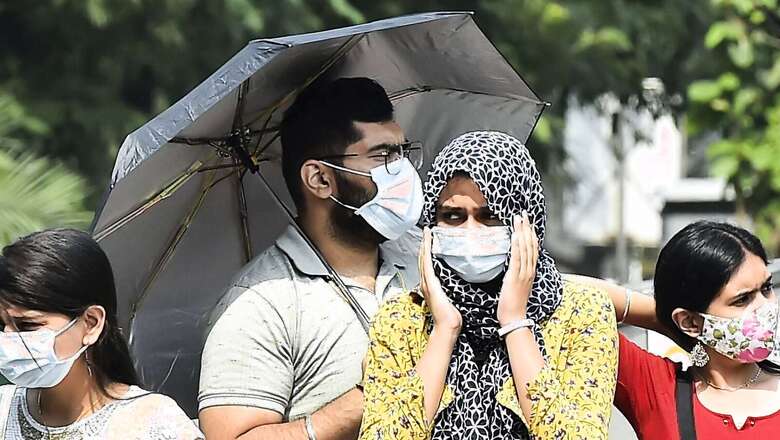Warmer Years Ahead, Warns Climate Body as Global Temperature Could Breach 1.5°C Threshold in 5 Years

views
As unprecedented heat conditions continue to take a massive toll on people, the World Meteorological Organization (WMO) has warned that the situation might get worse as it strongly predicts at least one year between 2022 and 2026 could be the warmest surpassing the last record set in 2016.
The year 2016 witnessed El Nino – when the sea-surface temperatures over the equatorial Pacific Ocean were warmer than usual, and it contributed to overall warming. But back-to-back La Niña events signalled by cooler sea-surface temperatures — at the start and end of 2021 and even in 2022 — had a cooling effect on global temperatures. The WMO says the impact is only temporary, and any development of an El Niño event would immediately fuel temperatures, as it did in 2016. The latest assessment also indicates that the current La Niña of 2021-22 could also decline. Further, the five-year average prediction also shows no signal favouring either El Nino or La Nina.
Global Temperature Exceeding 1.5°C More Likely Than Ever
The world was already warmer by 1.1°C above the pre-industrial baseline in 2021. Now, the global body has issued a stark warning that the chance of temporarily exceeding annual global temperature rise of 1.5°C above pre-industrial levels has risen steadily from 10% during 2017-2021 to nearly 50% in the next five years.
“The annual mean global near-surface temperature for each year between 2022 and 2026 is predicted to be between 1.1°C and 1.7°C higher than preindustrial levels (the average over the years 1850-1900),” said the WMO’s lead meteorological centre in the UK which prepared the report based on the information provided by global climate scientists and the prediction systems from leading climate centres around the world.
“The 1.5°C figure is not some random statistic,” said WMO Secretary-General Professor Petteri Taalas. “It is rather an indicator of the point at which climate impacts will become increasingly harmful for people and indeed the entire planet.”
Tallas warned that for as long as countries continue to emit greenhouse gases, temperatures will continue to rise — oceans will continue to become warmer and more acidic, sea ice and glaciers will continue to melt, sea level will continue to rise and our weather will become more extreme. “Arctic warming is disproportionately high and what happens in the Arctic affects all of us,” he added.
The 1.5°C is crucial if the world is to be saved from unprecedented natural disasters, including scorching heatwaves, which have swept large parts of India this summer. The Paris Agreement requires all countries to substantially reduce global greenhouse gas emissions to limit the global temperature increase in this Century to 2°C while pursuing efforts to limit the increase even further to 1.5°C.
However, Dr Leon Hermanson from the UK’s Met office clarified that a single year of exceedance above 1.5°C, however, does not mean the iconic threshold of the Paris Agreement, which refers to the long-term warming trends, has been breached. “But it does reveal that we are edging ever closer to a situation where 1.5°C could be exceeded for an extended period,” Hermanson concurred.
This also reaffirms what scientists have said in the past that temporary exceedances (over 1.5°C) are expected to occur with increasing frequency in the coming years. This would also mean that policymakers across countries will need guidance on how long the temperatures will remain above threshold and what its potential repercussions could be depending on the region.
Impact on Global Weather Patterns
According to the WMO, the temperature variations over the Arctic are also predicted to be three times as large as the global mean variations when compared to the 1991-2020, averaged over the next five northern hemisphere extended winters. This is extremely significant as it has a major impact on the weather patterns across the globe. India’s unprecedented heatwaves this summer are also being linked to these adverse changes.
Read all the Latest India News here




















Comments
0 comment